
Board games are tabletop games that typically use pieces. These pieces are moved or placed on a pre-marked board and often include elements of table, card, role-playing, and miniatures games as well.

Chess is a board game for two players, called White and Black, each controlling an army of chess pieces, with the objective to checkmate the opponent's king. It is sometimes called international chess or Western chess to distinguish it from related games such as xiangqi and shogi. The recorded history of chess goes back at least to the emergence of a similar game, chaturanga, in seventh century India. The rules of chess as they are known today emerged in Europe at the end of the 15th century, with standardization and universal acceptance by the end of the 19th century. Today, chess is one of the world's most popular games played by millions of people worldwide.

Hockey is a term used to denote a family of various types of both summer and winter team sports which originated on either an outdoor field, sheet of ice, or dry floor such as in a gymnasium. While these sports vary in specific rules, numbers of players, apparel, and playing surface, they share broad characteristics of two opposing teams using a stick to propel a ball or disk into a goal.

Polo is a ball game played on horseback, a traditional field sport and one of the world's oldest known team sports. The game is played by two opposing teams with the objective of scoring using a long-handled wooden mallet to hit a small hard ball through the opposing team's goal. Each team has four mounted riders, and the game usually lasts one to two hours, divided into periods called chukkas or "chukkers".

Chaturanga is an ancient Indian strategy board game. While there is some uncertainty, the prevailing view among chess historians is that it is the common ancestor of the board games chess, xiangqi (Chinese), janggi (Korean), shogi (Japanese), sittuyin (Burmese), makruk (Thai), ouk chatrang (Cambodian) and modern Indian chess.
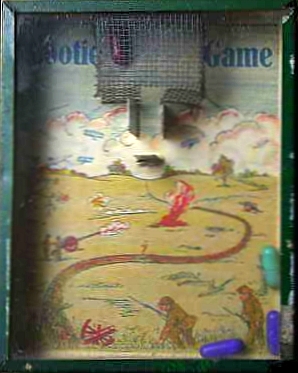
Cooties is a fictitious childhood disease, commonly represented as childlore. It is used in the United States, Canada, Australia, New Zealand, and the Philippines as a rejection term and an infection tag game. It is similar to the British 'dreaded lurgi', and to terms used in the Nordic countries, in Italy, India and Iraq. A child is said to "catch" cooties through close contact with an "infected" person or from an opposite-sex child of a similar age.
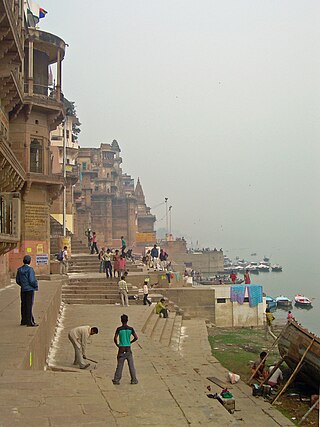
Gilli Danda also spelled Gulli-Danda also known as Viti Dandu, Kitti-Pul and by other variations, is a sport originating from the Indian subcontinent, played in rural areas and small towns all over South Asia. The game is played with two sticks: a large one called a danda, which is used to hit a smaller one, the gilli. It bears many similarities to bat and ball games such as cricket and baseball.
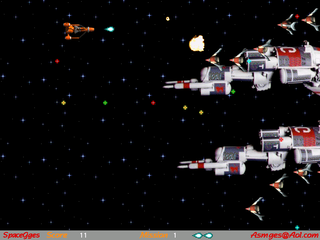
A video game genre is an informal classification of a video game based on how it is played rather than visual or narrative elements. This is independent of setting, unlike works of fiction that are expressed through other media, such as films or books. For example, a shooter game is still a shooter game, regardless of where or when it takes place. A specific game's genre is open to subjective interpretation. An individual game may belong to several genres at once.

Tag is a playground game involving one or more players chasing other players in an attempt to "tag" and mark them out of play, usually by touching with a hand. There are many variations; most forms have no teams, scores, or equipment. Usually, when a person is tagged, the tagger says, "Tag, you're 'It'!" The last one tagged during tag is "It" for the next round. The game is known by other names in various parts of the world, including "running and catching" in India and "catch and cook" in the Middle East.

Gridiron football, also known as North American football, or in North America as simply football, is a family of football team sports primarily played in the United States and Canada. American football, which uses 11 players, is the form played in the United States and the best known form of gridiron football worldwide, while Canadian football, which uses 12 players, predominates in Canada. Other derivative varieties include arena football, flag football and amateur games such as touch and street football. Football is played at professional, collegiate, high school, semi-professional, and amateur levels.

Southeast Asian mancalas are a subtype of mancala games predominantly found in Southeast Asia. They are known as congklak, congkak, congka, and dakon in Indonesia, congkak in Malaysia and Brunei, and sungkâ in the Philippines. They differ from other mancala games in that the player's store is included in the placing of the seeds. Like other mancalas, they vary widely in terms of the rules and number of holes used.
Pagat.com is a website containing rules to hundreds of card games from all over the world. Maintained by John McLeod, it contains information for traditional, commercial, and newly invented card games from all over the world. It has been described by writer David Parlett as the most important site of its kind on the Internet and the "only authoritative web site for all rules of card games and associated material."

Pool is a classification of cue sports played on a table with six pockets along the rails, into which balls are shot. Each specific pool game has its own name; some of the better-known include eight-ball, blackball, nine-ball, ten-ball, seven-ball, straight pool, one-pocket, and bank pool. Eight-ball is the most frequently played discipline of pool, and is often thought of as synonymous with "pool".
Qila Raipur Sports Festival, popularly known as the Rural Olympics, is held annually in Qila Raipur, in Punjab, India. Competitions are held for major Punjabi rural sports, include cart-race, athletic events and rope pulling.
Ajay Kumar, popularly known as Guinness Pakru, is an Indian actor. He has made an entry into the Guinness World Records for being the shortest actor to play a character in a full-length film. He played the lead role in Athbhutha Dweepu, a Malayalam movie directed by Vinayan. The movie was later dubbed in Tamil and Telugu versions.
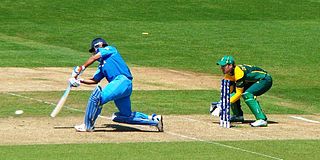
India has a history of sports dating back thousands of years. Cricket is the most popular spectator sport; it generates the highest television viewership, with the Indian Premier League (IPL) being the most-followed league in the country. Football has also gained popularity, with the Indian Super League (ISL) being the highest level of domestic football, and the national team winning multiple gold medals at the Asian and South Asian Games. Additional football accomplishments include India having reached the semifinal of the 1960 Olympics, qualified for the 1950 FIFA World Cup, and won the SAFF Championship. Other sports include kabaddi, badminton, tennis, and athletics, with kho-kho becoming the fourth-most viewed sport. India has also had success in field hockey, winning the World Cup and multiple medals in the Olympic Games. Sports such as golf, rugby, boxing, kickboxing, mixed martial arts, motorsport, wrestling, and basketball are featured throughout the country.

Chovgan, Chowgan or Chogan, is a sporting team game with horses that originated in ancient Iran (Persia). It was considered an aristocratic game and held in a separate field, on specially trained horses. The game was widespread among the Asian peoples. It is played in Iran, Azerbaijan, Tajikistan, and Uzbekistan.
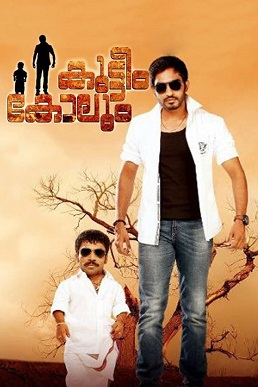
Kutteem Kolum is a 2013 Malayalam comedy film directed by Guinness Pakru, who made his directorial debut with this film. Starring Guinness Pakru, Munna, Adithya and Sanusha in the lead roles, the film was produced by Ansar Vasco under the banner United Films. The script was written by Suresh Satheesh, while the story was written by Pakru himself which revolves around the bonding between friends living in an imaginary village named Kumarapuram bordering Tamil Nadu. Cinematography was handled by A.Vinod Bharathi, and the stills by Vibin Velayudhan. The film released on 30 March 2013.
Nirmal Palazhi is an Indian actor who has worked predominantly in the Malayalam film industry known for his work on Puthan Panam, Diwanji Moola Grand Prix and Ira.

India has several traditional games and sports, some of which have been played for thousands of years. Many of these games do not require much equipment or playing space. Some traditional Indian games are only played in certain regions of India, or may be known by different names and played under different rules and regulations in different regions of the country. Many Indian games are also similar to other traditional South Asian games.















